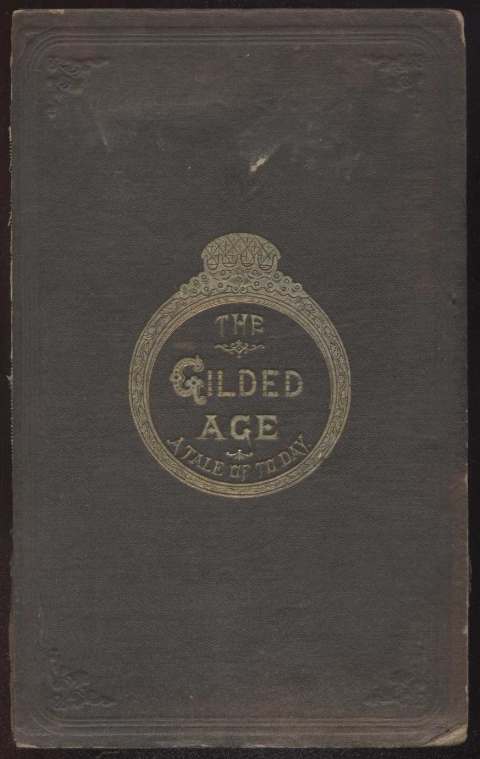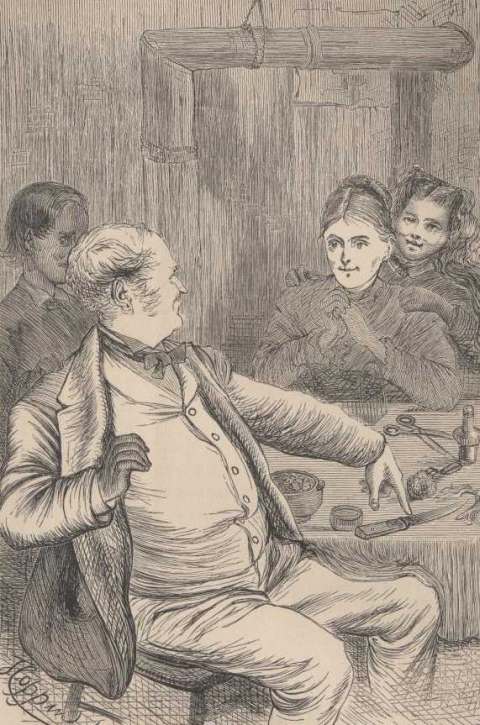0. General Information
Dear readers,
'The Gilded Age Part 1' by Mark Twain and Charles Dudley Warner was published in 1873. This is the only book Mark Twain wrote with another author.
The Gilded Age is a collection of stories consisting of 7 parts. Only Part 1 is released on this website. If interested, please read the other parts as well.
The Gilded Age Part 2
The Gilded Age Part 3
The Gilded Age Part 4
The Gilded Age Part 5
The Gilded Age Part 6
The Gilded Age Part 7
The content on this website is made possible courtesy of Project Gutenberg. Their volunteers have done a tremendous job of digitizing tens of thousands of books and then making them available for free download. I've selected some of the books and formatted them on my websites for easy reading from iPhone, Android, and similar mobile phones.
The images on this website are taken from http://www.gutenberg.org/files/5818/5818-h/5818-h.htm.

K. C. Lee
Mobile Story Enthusiast
From Project Gutenberg: This eBook is for the use of anyone anywhere at no cost and with almost no restrictions whatsoever. You may copy it, give it away or re-use it under the terms of the Project Gutenberg License included with this eBook or online at www.gutenberg.net.


PREFACE. This book was not written for private circulation among friends; it was not written to cheer and instruct a diseased relative of the author's; it was not thrown off during intervals of wearing labor to amuse an idle hour. It was not written for any of these reasons, and therefore it is submitted without the usual apologies.
It will be seen that it deals with an entirely ideal state of society; and the chief embarrassment of the writers in this realm of the imagination has been the want of illustrative examples. In a State where there is no fever of speculation, no inflamed desire for sudden wealth, where the poor are all simple-minded and contented, and the rich are all honest and generous, where society is in a condition of primitive purity and politics is the occupation of only the capable and the patriotic, there are necessarily no materials for such a history as we have constructed out of an ideal commonwealth.
No apology is needed for following the learned custom of placing attractive scraps of literature at the heads of our chapters. It has been truly observed by Wagner that such headings, with their vague suggestions of the matter which is to follow them, pleasantly inflame the reader's interest without wholly satisfying his curiosity, and we will hope that it may be found to be so in the present case.
Our quotations are set in a vast number of tongues; this is done for the reason that very few foreign nations among whom the book will circulate can read in any language but their own; whereas we do not write for a particular class or sect or nation, but to take in the whole world.
We do not object to criticism; and we do not expect that the critic will read the book before writing a notice of it: We do not even expect the reviewer of the book will say that he has not read it. No, we have no anticipations of anything unusual in this age of criticism. But if the Jupiter, Who passes his opinion on the novel, ever happens to peruse it in some weary moment of his subsequent life, we hope that he will not be the victim of a remorse bitter but too late.
One word more. This is--what it pretends to be a joint production, in the conception of the story, the exposition of the characters, and in its literal composition. There is scarcely a chapter that does not bear the marks of the two writers of the book. S. L. C.
C. D. W.
[Etext Editor's Note: The following chapters were written by Mark Twain: 1-11, 24, 25, 27, 28, 30, 32-34, 36, 37, 42, 43, 45, 51-53, 57, 59-62; and portions of 35, 49, and 56. See Twain's letter to Dr. John Brown Feb. 28, 1874 D.W.]